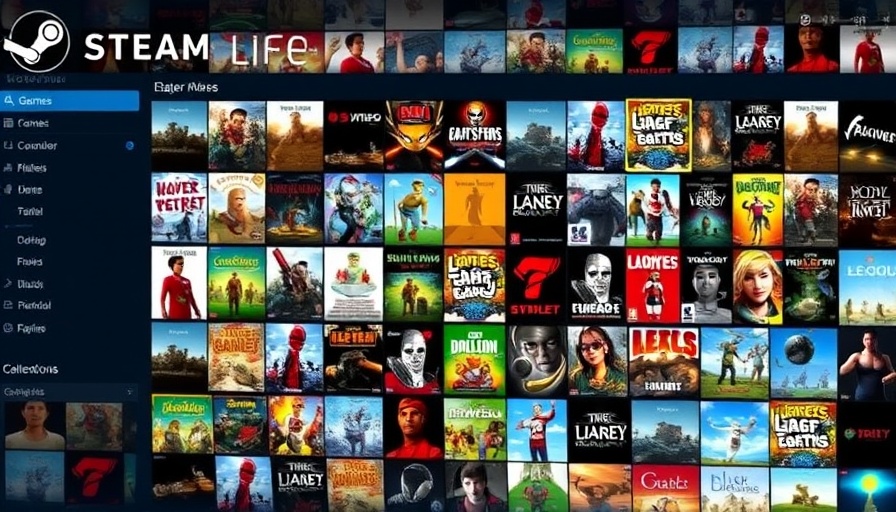
AI in Gaming: The Growing Concern
As artificial intelligence technologies have advanced, they have become increasingly integrated into various industries, including gaming. A recent discussion among Steam users and a surge in requests for a generative AI filter underscore a significant concern within the gaming community. Players are asking Valve, the parent company of Steam, to introduce a filter to exclude games that utilize AI-generated content. This push is not merely about preference; it reflects deeper ethical concerns related to AI's impact on creativity and employment.
Historical Context of AI in Games
The use of AI in video game development is not new, but it has evolved exponentially in recent years. Initially leveraged for creating smarter non-player characters (NPCs), AI now plays a prominent role in generating game assets and narratives. However, recent policy changes by Valve require developers to disclose whether generative AI tools are involved in their projects, highlighting a shift towards greater transparency. This change came in response to a growing awareness of the implications of using AI technologies, particularly regarding how training data is sourced.
Community Push for Change
Steam users have taken to forums advocating for a blanket filter for AI-generated games. By highlighting their opinions and concerns using Steam points to keep talks visible, they emphasize their reluctance to support games potentially built on pirated or uncredited materials. One user poignantly stated, "I want to play things people made, who love what they’ve created." This sentiment underscores the desire for authentic gaming experiences rather than derivative ones produced through automated means.
Ethical Implications of AI Content
The broader concern about AI-generated content also includes the ethics of how AI models are trained. Many prominent models have reportedly utilized a mixture of legally ambiguous or entirely pirated content. As this issue becomes integrated into public consciousness, a significant number of gamers now refuse to support any developers that rely on AI tools deemed unethical. The emotional and financial ramifications for developers embracing AI-driven processes are a pivotal factor in the ongoing discourse.
Current Trends in the Gaming Industry
The call for a filter is emblematic of larger trends within the gaming industry regarding transparency and consumer choice. Developers face a crossroads where they must navigate technological advancements that improve efficiency and creativity but also risk alienating traditional player bases concerned about the authenticity of their gaming experiences. It's caught between leveraging AI for cost-effectiveness and ensuring quality, engaging products that resonate with their audiences.
The Future of Gaming Filters
While Valve has hinted at identifying games that contain AI-generated content, the official implementation of a filter remains under discussion. Should this filter take shape, it could set an industry standard that prompts other gaming platforms to follow suit, reshaping how players interact with and perceive AI in games. This could perhaps lead other companies to explore ways to incorporate ethical considerations into their use of AI technologies.
Conclusion: What This Means Moving Forward
The discourse surrounding AI content in gaming highlights a pivotal moment for both players and developers. As expectations evolve, the pressure on Valve and other companies will likely grow. The implementation of a filter not only satisfies user demands but establishes a precedent that prioritizes ethical development practices. Gamers are increasingly interested in authenticity and creativity; it is crucial for developers to adapt to these changing expectations.
If you’re passionate about shaping the future of gaming and its relationship with AI, consider engaging in community discussions and fostering awareness about these important issues. Your voice can contribute to a gaming landscape that values ethics and creative integrity.
 Add Row
Add Row  Add
Add 


Write A Comment